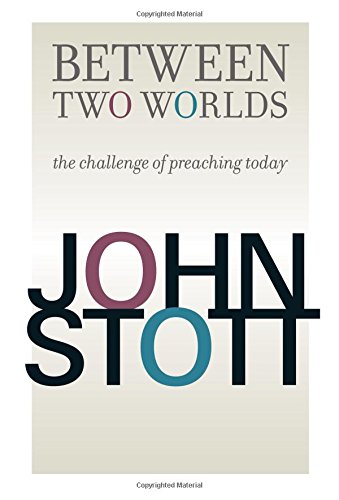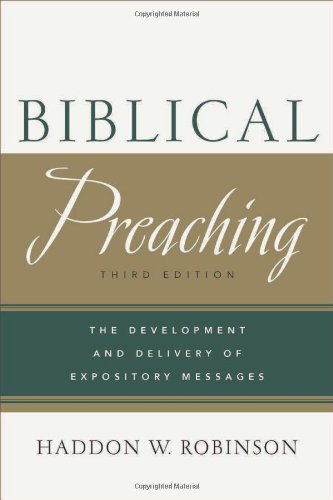Quotes about Preaching-Receiving
Concerning the hearer: that the hearers who are instructed in the Scriptures should examine what is said by the teachers, receiving what is in conformity with Scripture and rejecting what is opposed to them.
Convince them what a contradiction it is to be a Christian, and yet to refuse to learn; for what is a Christian but a disciple of Christ? And how can he be a disciple of Christ, that refuses to be taught by Him. And he that refuses to be taught by his ministers, refuses to be taught by Him; for Christ will not come down from heaven again to teach them by His own mouth, but has appointed His ministers to keep school and teach them under Him. To say, therefore, that they will not be taught by His ministers, is to say, they will not be taught by Christ; and that is to say, they will not be His disciples, or no Christians.
When Ezra preached to the people in Nehemiah 8, the attitude with which the listeners came to hear him was crucial. We need to follow their example by committing ourselves to attend expectantly, listen carefully, and apply the Scriptures properly. Then we can leave the service with joyful hearts.
Made For His Pleasure, Moody Press, 1996, p. 158. Get this book!
Without preparation the hearer cannot hear to profit. The sermon may fail because the preacher has failed in prayerful and thoughtful preparation; [but] the sermon may [also] fail because of the [lack] of thorough preparation in the pew.
Too often today we listen to be entertained instead of instructed, to be moved emotionally rather than moved to obedience.
The Practice of Godliness, NavPress, 1996, p. 38, www.navpress.com, Used by Permission.
In the hearing of God’s Word we profess our dependence upon God, for the knowing of His mind, and the way to eternal life… Remember that you come to tender up your homage to God, to sit at God’s feet, and there to profess your submission to Him. That is one end of your coming to hear sermons.
Some preachers never appreciate the compliment given them when a saint disagrees with the pastor’s exposition of a text. At least the Christian under his care is devoted more to Scripture than to the man in the pulpit. Under his ministry the child of God has reached a maturity to think through issues for himself and has imbibed a Berean spirit (Acts 17:11).
The Shadow of the Cross – Studies in Self-Denial, 1981, p. 61-62, by permission Banner of Truth, Carlisle, PA.
Please listen to me – you are not paying attention. I am talking to you about the Holy Scriptures, and you are looking at the lamps and the people lighting them. It is very frivolous to be more interested in what the lamplighters are doing… After all, I am lighting a lamp too – the lamp of God’s Word.
Quoted in Jay Adams, Be Careful How You Listen, Solid Ground Christian Publishers, 2007, p. 81.
Let not Satan persuade us to think the worse of the pure Word of God because of his corruption who delivers it. For what were this but to refuse a comfortable embassage from a gracious prince, because we dislike the qualities of the ambassadors?… Yea, what is it but to cross our Saviour Christ’s express commandment, who commanded all to hear even the Scribes and Pharisees who sat on Moses’ chair, and to do after their words though not after their works?
A Puritan Golden Treasury, compiled by I.D.E. Thomas, by permission of Banner of Truth, Carlisle, PA. 2000, p. 316.
Our public assemblies were then beautiful; the congregation was alive in God’s service, everyone earnestly intent on the public worship, every hearer eager to drink in the words of the minister as they came from his mouth; the assembly in general were, from time to time, in tears while the Word was preached; some weeping with sorrow and distress, others with joy and love, others with pity and concern for the souls of their neighbors.
A Faithful Narrative of the Surprising Work of God, Works, Vol. 4, p. 151.|A Faithful Narrative of the Surprising Work of God, Works, Vol. 4, p. 151.
Dull hearts make dull preachers. But I must also say that dull ears can ruin the best of sermons. And dull ears are outgrowths of dull hearts also. There is nothing more devastating to a Sunday than putting both of them together. You might as well be living with Cain in the land of Nod. The preacher blows arid desert air on the people, and the people flap their eyelids shut, the dust of indifference circling up from their nodding heads.
Dull Preachers, Christian Communicators Worldwide, www.CCWtoday.org. Used by Permission.
It is not that people are unable to hear stronger sermons: it’s that we’ve become lazy listeners. People died for those doctrines you take for granted! What Paul meant by milk is not what we mean. We want Kool-Aid. Milk is at least good truth in a digestible form for babies, but Kool-Aid is pure taste plus nothing. And oh how we crave it!
Serious Preaching, Christian Communicators Worldwide, www.CCWtoday.org. Used by Permission.
We should not encourage young children to draw and play during the preaching of the Word since we are training listeners, not idle-minded pew sitters.
Seriousness in Our Children and Teens, Christian Communicators Worldwide, www.CCWtoday.org. Used by Permission.
The first [caveat] is concerning the matter which we hear, “Take heed what you hear,” (Mark 4:24). We must hear nothing with approval except what we know to be the word of God. We must, therefore, be well acquainted with the Scriptures ourselves, and by them test the things which we hear, whether they are the word of God or not, as the men of Berea did, Acts 17:11. The second caveat is concerning the manner of hearing, “Take heed how you hear,” (Luke 18:18). That which we know to be grounded upon the Scriptures we must receive, “not as the word of men, but, as it is in truth, the word of God,” (1 Thess. 2:13). We must with reverence attend to it; we must in our hearts believe, and we must in our lives obey it.
The Christian’s life should put his minister’s sermon in print.
A Puritan Golden Treasury, compiled by I.D.E. Thomas, by permission of Banner of Truth, Carlisle, PA. 2000, p. 195.
Thou must be an attentive hearer; he that is awake, but wanders with his eye or heart, what doth he but sleep with his eyes open?
A Puritan Golden Treasury, compiled by I.D.E. Thomas, by permission of Banner of Truth, Carlisle, PA. 2000, p. 315.
It is easier to go six miles to hear a sermon, than to spend one quarter of an hour in meditating upon it when I come home.
Sermons are dangerous things. None goes out of church as he came in, but either better or worse.
Let us never forget that, to be profited, that is, to be spiritually improved in knowledge, faith, holiness, joy and love, is the end of hearing sermons, and not merely to have our taste gratified by genius, eloquence and oratory.
When the faithful minister is properly exegeting the Word of God, it is God Himself who is speaking to His people! Failure to hear the faithful minister is a failure to hear God Himself! Isn’t that exactly what Jesus told His disciples? “If they won’t listen to you, they won’t listen to Me!” That is why we are not to let anyone disregard us (Titus 2:15), because that would mean that we are letting them disregard Christ!
There is something essentially wrong with a man who calls himself a Christian and who can listen to a truly evangelistic sermon without coming under conviction again, without feeling something of his own unworthiness, and rejoicing when he hears the Gospel remedy being presented.
Preachers and Preaching, Zondervan, 1971, p. 150. Get this book!
What about the people [when the Spirit is moving a preacher]? They sense it at once; they can tell the difference immediately. They are gripped, they become serious, they are convicted, they are moved, they are humbled. Some are convicted of sin, others are lifted up to the heavens, anything may happen to any one of them. They know at once that something quite unusual and exceptional is happening. As a result they begin to delight in the things of God and they want more and more teaching.
Preaching and Preachers, Zondervan, 1972, p. 324-325. Get this book!
As a hearer, you have a right to try all doctrines by the word of God; and it is your duty so to do. Faithful ministers will remind you of this: they will not wish to hold you in an implicit and blind obedience to what they say, upon their own authority, nor desire that you should follow them farther than they have the Scripture for their warrant. They would not be lords over your conscience, but helpers of your joy. Prize this Gospel liberty, which sets you free from the doctrines and commandments of men; but do not abuse it to the purposes of pride and self.
There are hearers who make themselves, and not the Scripture, the standard of their judgment. They attend not so much to be instructed, as to pass their sentence. To them, the pulpit is the bar at which the minister stands to take his trial before them; a bar at which few escape censure, from judges at once so severe and inconsistent.
Hearing a sermon is not like hearing a lecture. It is your meeting with the living Christ. It is you seeing His glory, so that you can feel it and be changed by it. Let’s pay attention to Him and what He means a sermon to be, lest we miss Him.
When God’s Word is being preached, you’re not merely receiving information about God. God Himself is addressing you through His Word Jeff Purswell).
Make it your work with diligence to apply the word as you are hearing it… Cast not all upon the minister, as those that will go no further than they are carried as by force… You have work to do as well as the preacher, and should all the time be as busy as he… You must open your mouths, and digest it, for another cannot digest it for you… Therefore be all the while at work, and abhor an idle heart in hearing, as well as an idle minister.
A Quest for Godliness, Crossway Books, 1990, p. 254.
Get this book!
We complain today that ministers do not know how to preach; but is it not equally true that our congregations do not know how to hear?
There is a hearing that barely gets started and the Word is gone before you get out the door. There is a hearing that lasts until there is a hard time in life, and then one turns from God to other messages. There is a hearing that flourishes until the riches and pleasures of this life choke it off. And there is a hearing that defeats the devil, endures trial, scorns riches and bears fruit unto eternal life [see Luke 8:4-18].
From the Sermon: Take Care How You Listen – Part 1, Luke 8:4-18, February 15, 1998, www.DesiringGod.org, Used by Permission.
What can you do Saturday evening and Sunday morning and on the way to church [to prepare]… for hearing the Word of God preached?
1. Pray that God would give you [a] good and honest heart (Eze. 36:26; Jer. 24:7).
2. Meditate on the Word of God. Read portions of your Bible with a view to stirring up hunger for God.
3. Purify your mind by turning away from worldly entertainment (Jas. 1:21).
4. Trust in the truth that you already have (Jer. 17:7-8).
5. Get a good night’s rest on Saturday night.
6. Forebear one another [before the service] without grumbling and criticism.
7. Come in a spirit of meek teachability (Jas. 1:21).
8. Be still as you enter the room and focus your mind’s attention and heart’s affection on God (Psm. 46:10).
9. When the worship service begins, think earnestly about what is sung and prayed and preached (1 Cor. 14:20; 2 Tim. 2:7).
10. Desire the truth of God’s Word more than you desire riches or food (Psm. 19:10-11; Pr. 2:3-5).
From the Sermon: Take Care How You Listen – Part 2, Luke 8:4-18, February 22, 1998, www.DesiringGod.org, Used by Permission.
It astonishes me how many Christians watch the same banal, empty, silly, trivial, titillating, suggestive, immodest TV shows that most unbelievers watch – and then wonder why their spiritual lives are weak and their worship experience is shallow with no intensity. If you really want to hear the Word of God the way He means to be heard in truth and joy and power, turn off the television on Saturday night and read something true and great and beautiful and pure and honorable and excellent and worthy of praise (see Philippians 4:8). Then watch your heart unshrivel and begin to hunger for the Word of God.
From the Sermon: Take Care How You Listen – Part 2, Luke 8:4-18, February 22, 1998, www.DesiringGod.org, Used by Permission.
The root that nourishes fruitful hearing is the root of faith. Hearing begets faith and faith begets better hearing. Trusting in the truth you already have is the best way to prepare yourself to receive more. So when you pray and meditate and turn off the TV, consciously fix your heart on the promises of God and trust him Saturday night and Sunday morning.
From the Sermon: Take Care How You Listen – Part 2, Luke 8:4-18, February 22, 1998, www.DesiringGod.org, Used by Permission.
Without sufficient sleep, we are not alert; our minds are dull, our emotions are flat and unenergetic, our proneness to depression is higher, and our fuses are short. “Take heed how you hear” means get a good night’s rest before you hear the Word of God.
From the Sermon: Take Care How You Listen – Part 2, Luke 8:4-18, February 22, 1998, www.DesiringGod.org, Used by Permission.
Saturday night’s and Sunday morning’s grumbling and controversy and quarreling can ruin a worship service for a family. My suggestion is this: When there is something you are angry about or some conflict that you genuinely think needs to be talked about, forebear, and put if off till later on Sunday after worship. Don’t dive in Saturday night or Sunday morning (Psalm 106:25).
From the Sermon: Take Care How You Listen – Part 2, Luke 8:4-18, February 22, 1998, www.DesiringGod.org, Used by Permission.
Inability to distinguish doctrine is spreading far and wide, and so long as the preacher is “clever” and “earnest,” hundreds seem to think it must be all right, and call you dreadfully “narrow and uncharitable” if you hint that he is unsound!
Most true is it that what costs little is worth little! A religion which costs us nothing, and consist in nothing but hearing sermons, will always prove at last to be a useless thing.
How can Satan in a subtle way get people to disregard the truth on Sunday morning? How about getting people to think the sermon is entertainment or sitting through an entire sermon for a need to uphold a religious duty? Yeah, nothing about coming prepared to hear God’s Word. According to Satan – I’ll keep them out late on Saturday night. I’ll distract them with Sunday afternoon plans. I’ll have them put way more time into looking good physically than preparing their hearts spiritually before coming to church. I’ll have them arrive late so they can miss the singing to prepare their hearts to receive the truth and then distract others trying to worship when they stroll in. I’ll get them to believe the message is more intended for someone else. I’ll get them to listen for the 1% they disagree with as compared to the 99% they need to know. I’ll convince them that applying what they just heard is optional. And then I’ll get them to forget about what they heard before they even reach their cars.
The bell in the steeple may be well hung, fairly fashioned, and of soundest metal, but it is dumb until the ringer makes it speak. And…the preacher has no voice of quickening for the dead in sin, or of comfort for living saints unless the divine [Spirit] gives him a gracious pull, and begs him speak with power. Hence the need of prayer for both preacher and hearers.
We are told men ought not to preach without preparation. Granted. But, we add, men ought not to hear without preparation. Which, do you think, needs the most preparation, the sower or the ground? I would have the sower come with clean hands, but I would have the ground well-plowed and harrowed, well-turned over, and the clods broken before the seed comes in. It seems to me that there is more preparation needed by the ground than by the sower, more by the hearer than by the preacher.
No music is more sweet to a gospel preacher than the rustle of Bible pages in the congregation.
The best sermon is that in which the theme absorbs the preacher and hearers, and leaves no one either time or desire to think about the speaker.
A congregation’s attitude to their minister should be determined by his loyalty to the apostolic message… No minister, however exalted his rank in the visible church, is an apostle of Jesus Christ. Nevertheless, if he is faithful in teaching what the apostles taught, a godly congregation will humbly receive his message and submit to it. They will neither resent nor reject it. Rather, they will welcome it, even with the deference which they would give to an angel of God, to Christ Jesus Himself, because they recognize that the minister’s message is not the minister’s message, but the message of Jesus Christ.
Taken from The Message of Galatians by John R.W. Stott. Copyright(c) 1968 John R. W. Stott. Used by permission of InterVarsity Press, PO Box 1400, Downers Grove, IL 60515, p. 118. www.ivpress.com. http://www.ivpress.com/cgi-ivpress/book.pl/code=288.
All in the church may hear the Word of Christ, but few hear Christ in the Word.
A Puritan Golden Treasury, compiled by I.D.E. Thomas, by permission of Banner of Truth, Carlisle, PA. 2000, p. 317.
Here are [five] important ingredients in listening to sermons:
1. Get sufficient rest before the message so that your mind is not so worn out that it cannot listen.
2. Pray continually, asking God to help you to understand and respond properly to His Word.
3. Make sure that you have everything needed (Bible, writing pad, pen, etc.). Sit where you can see and hear. Make sure personal needs are taken care of.
4. Motivate yourself. The responsibility for developing interest and understanding is primarily yours before God. Make conscious effort to be optimistic and interested from the beginning. Give the speaker your attention. If you don’t have a good, immediate reason for listening to a speaker, you probably won’t listen properly.
5. Be sure to read any assigned readings. A listener who has done his homework has better comprehension.
Life in the Body of Christ, Founders Press, 2006, p. 142, www.founderspress.org. Used by Permission. Get this book!
A good listener:
1. Blocks out possible distractions and is not easily distracted.
2. Concentrates (listening is work) and avoids mind drift.
3. Anticipates but does not assume (does not jump to conclusions).
4. Does not judge until comprehension is complete.
5. Recognizes his own predispositions, prejudices or biases toward the subject or speaker and attempts to re-evaluate his position (he listens objectively).
6. Does not dwell on unfamiliar vocabulary, but rather continues to work at listening and attempts to comprehend the main intent of the message.
Life in the Body of Christ, Founders Press, 2006, p. 142, www.founders.org. Used by Permission.
Some wish to hear the word of God, others wish to receive it.
Be not only attentive in hearing, but retentive after hearing.
A Puritan Golden Treasury, compiled by I.D.E. Thomas, by permission of Banner of Truth, Carlisle, PA. 2000, p. 315.
Take heed of drowsiness in hearing; drowsiness shows much irreverence. How lively are many when they are about the world, but in the worship of God how drowsy?… In the preaching of the Word, is not the bread of life broken to you; and will a man fall asleep at his food? Which is worse, to stay from a sermon, or sleep at sermon?
A Puritan Golden Treasury, compiled by I.D.E. Thomas, by permission of Banner of Truth, Carlisle, PA. 2000, p. 315.
Only once did God choose a completely sinless preacher.































